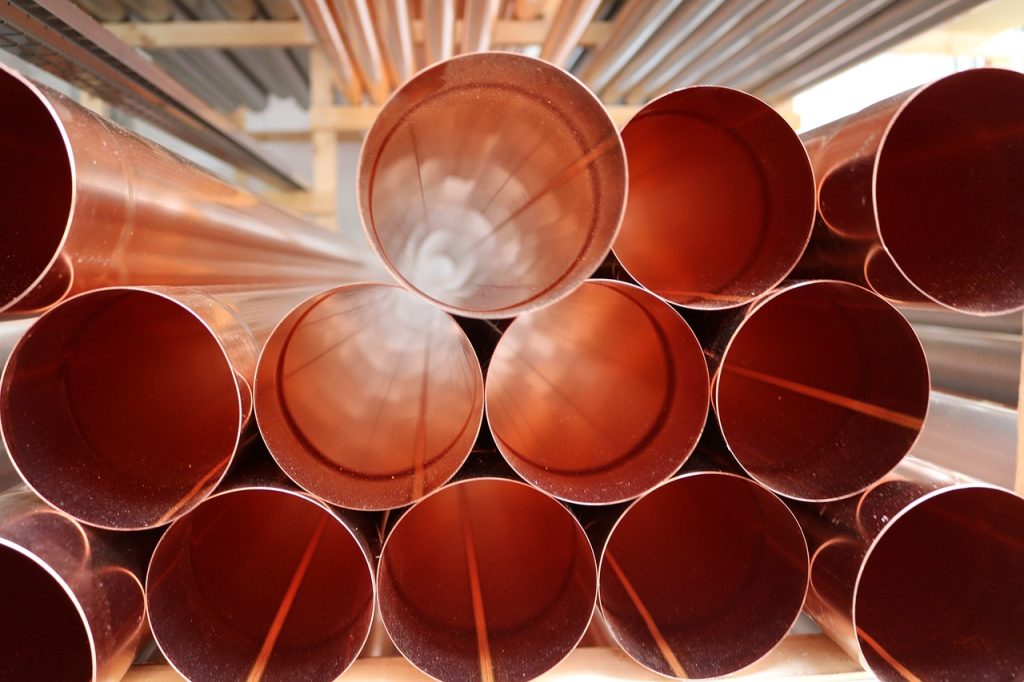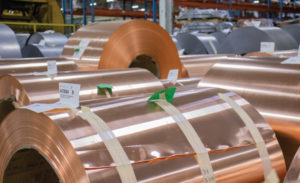Exactly How Copper Products Add To Sustainable Practices in Numerous Fields
In sustainable energy systems, for example, copper boosts the functionality of solar and wind modern technologies, while its application in building lessens waste via longevity. As industries seek to take on even more lasting methods, the function of copper might show crucial in accomplishing ecological objectives.
Copper in Renewable Energy
Copper plays a crucial function in the development of renewable resource technologies, functioning as a vital conductor in various applications. Its extraordinary electrical conductivity and resistance to corrosion make it a suitable material for electric wiring, which is vital in photovoltaic panels, wind generators, and power storage systems. In solar photovoltaic or pv systems, copper is utilized in the interconnections and circuitry, allowing effective power conversion from sunshine to electrical energy.
In wind energy, copper is indispensable to the generators and transformers that convert kinetic energy right into electrical energy, guaranteeing optimal efficiency and reliability. The demand for electric cars (EVs) is raising, with copper being a vital element in batteries, motors, and billing infrastructure. The transition to EVs dramatically boosts the need for copper, as these cars generally use four times a lot more copper than conventional inner burning engine lorries.
As the globe seeks to mitigate environment modification and transition to sustainable power sources, copper's role ends up being significantly critical. The material not just boosts the effectiveness and longevity of sustainable energy systems yet likewise sustains the more comprehensive objective of reducing greenhouse gas emissions and promoting a sustainable future.
Eco-Friendly Construction Products
In recent times, there has been a significant shift towards the fostering of green building and construction materials in action to expanding environmental problems. This modification is encouraged by the demand for lasting alternatives that decrease ecological footprints while preserving architectural integrity and visual appeal.
Copper, understood for its resilience and recyclability, has become a key player in this field. It can be used in roof, plumbing, and electric systems, contributing to power efficiency and minimizing waste. Copper's longevity suggests less substitutes in time, additional enhancing its sustainability profile.
Additionally, products such as bamboo, recovered wood, and recycled steel are acquiring popularity. These alternatives not just use reduced ecological impact yet also promote source preservation. As constructing codes significantly highlight sustainability, architects and building contractors are integrating these materials into their tasks, promoting technology in style.
The enhancing fostering of environmentally friendly building materials shows a wider dedication to sustainability in the constructed environment. By focusing on these materials, the construction industry can considerably lower its carbon footprint, line up with regulative criteria, and support a much healthier environment for future generations. This trend notes a crucial step towards an extra sustainable future in construction.
Copper's Duty in Medical care
Recent research studies have highlighted the considerable function of copper in health care setups, particularly as a result of its antimicrobial homes. Copper surface areas have been revealed to minimize the visibility of virus, including bacteria and infections, by as much as 99.9% within a brief period. This amazing effectiveness makes copper a vital product for high-touch surfaces in medical facilities, such as doorknobs, bed rails, and IV posts, therefore adding to boosted infection control steps.
In enhancement to its direct antimicrobial results, copper also contributes in the wider context of medical facility sustainability (Copper Products). By integrating copper into medical tools and furnishings, healthcare facilities can lower the incidence of healthcare-associated infections (HAIs), which not only boosts patient outcomes yet likewise reduces the expenses associated with prolonged medical facility keeps and additional treatments
Moreover, copper's resilience and recyclability line up with sustainable methods, allowing for liable source management. As medical care systems progressively focus on both person safety and environmental stewardship, the assimilation of copper items is useful reference ending up being more common. This dual advantage highlights copper's crucial payment to a healthier, safer, and much more sustainable medical care environment.
Sustainability in Transport

Moreover, copper's toughness and corrosion resistance add to the long life of transport facilities (Copper Products). In rail systems, for example, copper components improve the integrity and effectiveness of signaling and power systems, crucial for reducing his response delays and power usage. Furthermore, copper's function in renewable energy systems, such as solar and wind, sustains sustainable transport services by supplying clean energy for electrical transportation alternatives
Investments in copper technology not only foster sustainability yet likewise boost economic growth and task production in green sectors. As sectors make every effort to fulfill rigid environmental policies, the application of copper products in transport emerges as a crucial technique in attaining sustainability goals and promoting a cleaner, a lot more effective future.
Copper and Round Economic Situation
As the globe progressively embraces sustainability, the duty of copper in the round economic climate comes to be ever before extra considerable. Copper's intrinsic residential or commercial properties-- such as its recyclability, durability, and conductivity-- placement it as a vital product in a resource-efficient economic situation. The round economy intends to reduce waste and maximize resource usage through recycling and reusing products, and copper excels in this respect.
The steel can be reused indefinitely without loss of top quality, making it a suitable candidate for sustainable practices across numerous sectors, including construction, electronic devices, and renewable resource. By recuperating and reprocessing copper from end-of-life products, sectors can considerably lower the demand for virgin materials, thereby reducing ecological effects connected with mining and handling.
Additionally, the assimilation of copper right into circular economy structures not only preserves sources but additionally cultivates technology. Businesses that focus on moved here copper recycling add to a much more lasting supply chain, enhancing their competition while aligning with governing demands and consumer preferences for ecologically accountable items.
Verdict
Finally, copper products considerably add to lasting methods throughout numerous markets. Their important function in improving renewable resource modern technologies, promoting green building products, sustaining infection control in medical care, promoting sustainable transport, and embodying the principles of a circular economy highlights the flexibility and value of copper. By incorporating copper right into numerous applications, industries can accomplish higher performance, lower ecological influence, and straighten with international sustainability goals, inevitably promoting a more lasting future.

Copper's excellent conductivity makes it a preferred material in electric automobile (EV) systems, improving power efficiency and performance. Additionally, copper's role in eco-friendly energy systems, such as solar and wind, supports sustainable transport options by supplying tidy power for electrical transit options.
Their vital function in boosting eco-friendly energy modern technologies, advertising environment-friendly building and construction materials, supporting infection control in medical care, promoting sustainable transportation, and embodying the principles of a circular economic climate emphasizes the convenience and significance of copper.
Comments on “Exactly how to Select the Right Copper Products for Your DIY Projects and Home Renovations”